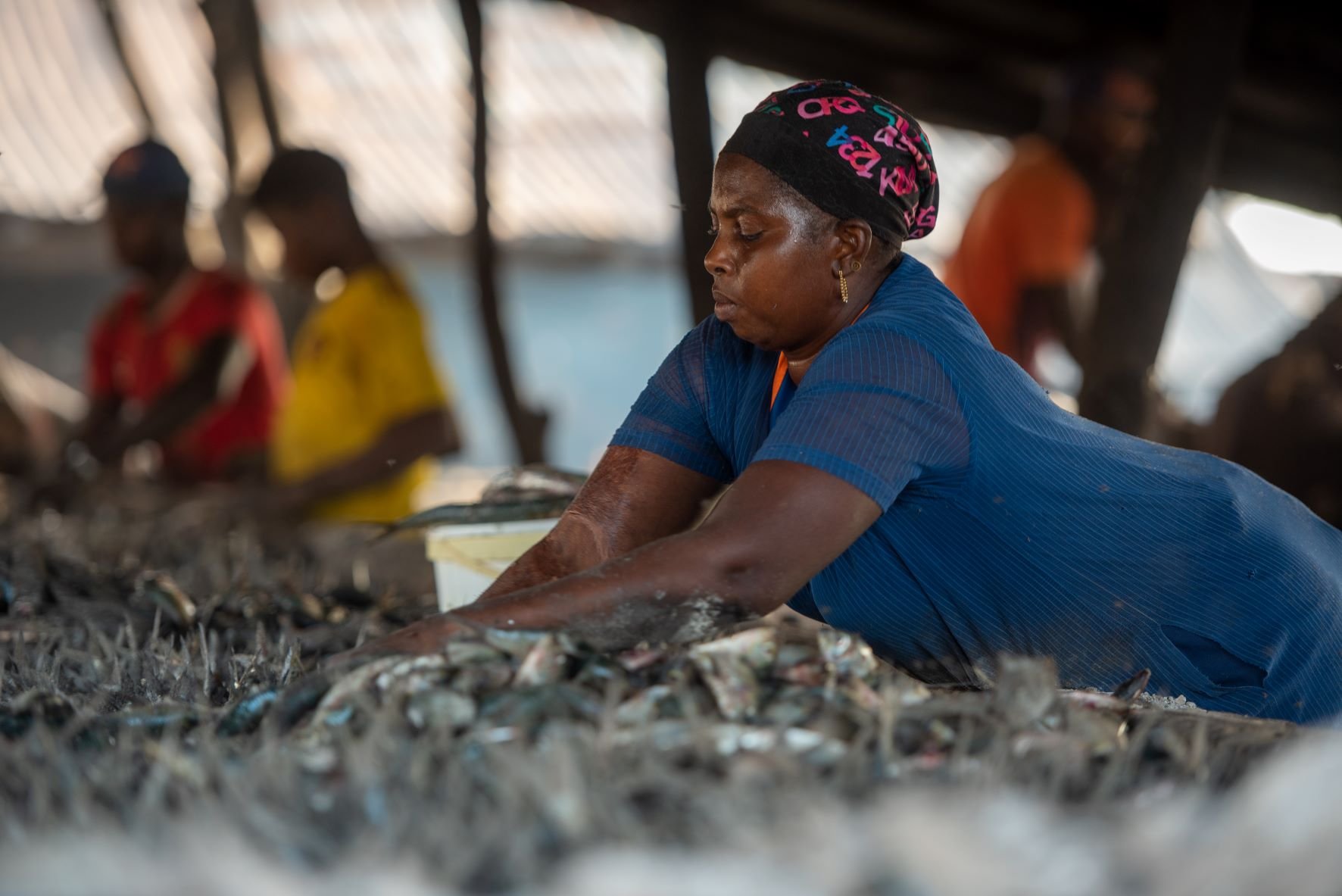When the container was purchased in July 2020, the president of the Union des Sociétés Coopératives des Mareyeuses et Transformatrices des Produits de la Pêche (USCOFEP-CI) was delighted: "It is the first time that fishing communities have seen a concrete positive impact of the agreement with the European Union." Only two months after the inauguration, the real impact of this container can be seen on the spot: the wager of these women fish processors has been won, the goal achieved. Thanks to this refrigerated container, the supply of fish between the fish-rich area of San Pedro and Abidjan is now continuous.
BETTER ACCESS TO RAW MATERIAL
During the 2016 and 2018 joint committees on the implementation of the protocol of the Sustainable Fisheries Partnership Agreement (SFPA) between the European Union and Côte d'Ivoire, the European counterpart expressed its interest in supporting women fish processors, in order to help them gain better access to raw material. The Ivorian Ministry of Animal and Fisheries Resources (MIRAH), through the Programme d'Appui à la Gestion Durable des Ressources Halieutiques (PAGDRH), set up a fund, from the financial counterpart of the SFPA, to help improve the income of women fish processors.
With an initial sum of 17 million CFA francs (approx. €26,000), the USCOFEP-CI purchased a forty-foot refrigerated container in July for the conservation and packaging of fish. The internal management committee of USCOFEP-CI decided to place it in San Pedro, a fish-rich area 300 km west of Abidjan, where, due to the lack of conservation facilities, large quantities of landed fish were lost.
THE NEXT OBJECTIVE: A REFRIGERATED TRUCK
USCOFEP-CI explains that, for the time being, "the fish is transported by the women in cool boxes to ensure freshness all the way to Abidjan". This continuous supply gives "some security" to the activities of the women fish processors in Abidjan, who receive sole, mackerel, shrimp, prawns, crabs and other species landed for processing through this channel. Nevertheless, they have already set themselves a new goal, the purchase of a refrigerated truck that would allow them to transport larger quantities of fish in complete safety.
Banner photo: USCOFEP-CI Open House for International Women's Day, March 2020. Andrea Durighello/GIZ










West Africa has pioneered several decades of artisanal fisheries management reform. Yet there are still major obstacles to co-management: a lack of political will reflected in low budgetary allocations; inadequate and poorly targeted support for fisher organizations; poorly defined roles and responsibilities of fishers in co-management; lack of enforcement of inshore exclusive zones; and inadequate defense of human rights and particularly the important role of women.